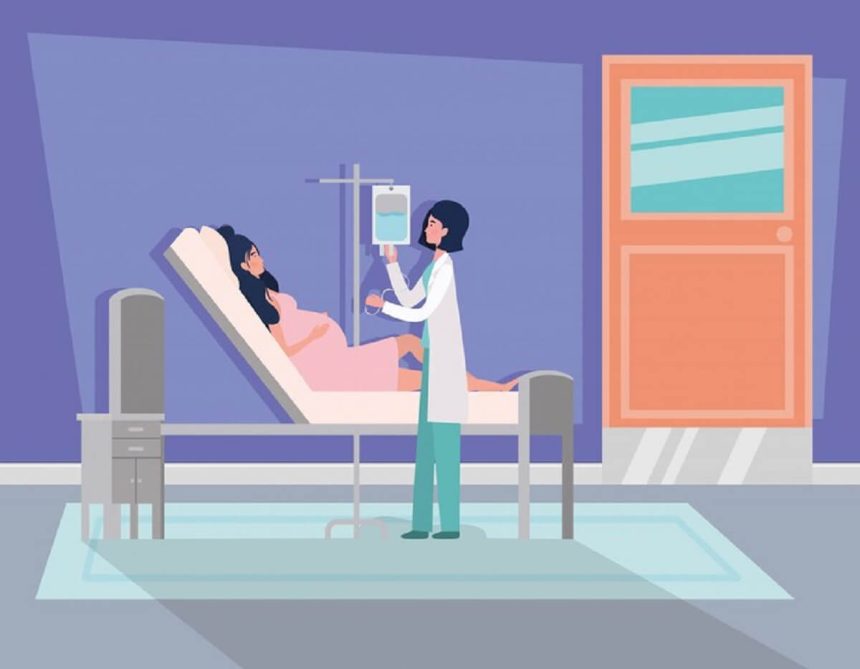High Risk Pregnancy: 7 Essential Tips for a Secure Journey
Your High-Risk Pregnancy Blueprint: Proactive Strategies for a Healthy Journey
Facing a high-risk pregnancy can be daunting, but with the right care and guidance, it can be navigated safely and confidently. Dr. Surpreet Kaur Sandhu, a leading gynecologist in Sarita Vihar, New Delhi, brings her expertise to the forefront in this comprehensive guide. From understanding what makes a pregnancy high-risk to implementing strategies for the best possible outcomes, this article aims to empower and educate expectant mothers on their journey. Let’s delve into the world of high-risk pregnancy care and discover how proactive strategies can lead to a successful and healthy pregnancy.

In the face of challenges, informed care and compassion light the path through a high-risk pregnancy.
Dr. Surpreet Kaur Sandhu
Identifying High-Risk Factors
Understanding what constitutes a high-risk pregnancy is crucial.
- Common risk factors and causes
- Importance of early identification
- Role of regular health check-ups
Tailored Medical Care for High Risk Pregnancy
Individualized care plans are key to managing high-risk Pregnancy.
- Collaborative care approach
- Regular monitoring and testing
- Access to specialized medical service
Nutrition and Lifestyle Adjustments
Optimizing health through diet and lifestyle is vital.
- Nutritional needs for high risk pregnancy
- Safe exercise and activity guidelines
- Stress management techniques
Emotional Support and Mental Health
Addressing the emotional aspects of high risk pregnancy.
- Importance of mental health support
- Building a supportive network
- Coping strategies and resources
Understanding Potential Interventions
Being informed about possible medical interventions.
- Common interventions in high risk pregnancies
- Decision-making and consent
- Preparing for possible outcomes
Birth Planning and Delivery Options
Crafting a birth plan that accommodates high risk Pregnancy conditions.
- Considerations for delivery methods
- Role of healthcare team in delivery planning
- Flexibility and contingency plans
Postpartum Care and Recovery
Focusing on recovery and care after delivery.
- Postpartum monitoring and care
- Recovery strategies and tips
- Long-term health considerations
Conclusion
Navigating a high-risk pregnancy requires knowledge, support, and proactive care. By understanding the risk factors, adhering to tailored medical advice, and maintaining a healthy lifestyle, you can significantly improve your pregnancy experience. Dr. Surpreet Kaur Sandhu’s expert guidance underscores the importance of individualized care and emotional support in managing high-risk situations. Embrace this journey with confidence, knowing that with the right strategies and support, a high-risk pregnancy can still be a journey filled with hope and joy.
“Apollo Delhi opens its doors to your well-being—book your gynae appointment, and let the best in the field guide you towards lasting health.”
Dr. Surpreet Kaur Sandhu
FAQs
Q: What makes a pregnancy high risk?
According to Dr. Sandhu, high-risk pregnancies are a result of factors like maternal age, pre-existing medical conditions, and pregnancy complications.
Q: How often should I see my doctor during a high-risk pregnancy?
Dr. Surpreet Kaur Sandhu recommends more frequent visits for regular monitoring and assessment in high-risk pregnancies.
Q: Can I have a normal delivery in a high-risk pregnancy?
Normal delivery is possible in some high-risk pregnancies, but it depends on individual circumstances and should be discussed with your healthcare provider.
Q: What are the signs I should watch for during a high-risk pregnancy?
According to Dr. Sandhu, warning signs include unusual pain, bleeding, severe headaches, and changes in the baby’s movements.
Q: How can I manage stress during a high-risk pregnancy?
According to healthcare professionals like Dr. Sandhu, stress management strategies can include relaxation techniques, support groups, and counseling.
Q: Are there special nutritional needs for high-risk pregnant women?
Yes, according to advice from medical professionals, high-risk pregnancies may have specific nutritional needs to support both maternal and fetal health.
Q: What postpartum care is essential after a high-risk pregnancy?
Postpartum care after a high-risk pregnancy includes regular health check-ups, monitoring for complications, and adequate rest and nutrition.
Q: Can lifestyle changes reduce the risk of complications in a high-risk pregnancy?
Lifestyle changes like a proper diet, moderate exercise, and avoiding harmful substances can reduce the risk of complications in high-risk pregnancies.
Q: How can I ensure the best care for a high-risk pregnancy in Sarita Vihar, New Delhi?
For the best care in Sarita Vihar, New Delhi, Dr. Sandhu recommends choosing a healthcare provider with experience in high-risk pregnancies, adhering to all medical advice, and maintaining regular prenatal check-ups.
Q: Are there specific tests recommended during a high-risk pregnancy?
Yes, Dr. Sandhu may recommend additional tests like advanced ultrasounds, amniocentesis, or specialized blood tests to monitor the health of both the mother and the fetus in a high-risk pregnancy.
Q: How often should I visit my gynecologist during a high-risk pregnancy?
Dr. Surpreet Kaur Sandhu advises more frequent prenatal visits for high-risk pregnancies to closely monitor the health of the mother and the developing baby.
Q: Can high-risk pregnancies result in premature births?
High-risk pregnancies have a higher chance of leading to premature birth, and Dr. Sandhu emphasizes the importance of regular monitoring and care to prevent or manage such outcomes.
Q: What lifestyle changes should I make during a high-risk pregnancy?
Dr. Sandhu recommends lifestyle changes such as a balanced diet, appropriate physical activity, avoiding harmful substances, and stress reduction techniques during a high-risk pregnancy.
Q: Is bed rest necessary for all high-risk pregnancies?
Even though bed rest isn’t always necessary for high-risk pregnancies, Dr. Sandhu might advise it in particular circumstances if it can help manage specific health issues or complications.
Q: How can I manage my anxiety during a high-risk pregnancy?
To manage anxiety during a high-risk pregnancy, Dr. Sandhu suggests seeking support from counseling, joining support groups, practicing relaxation techniques, and maintaining open communication with the healthcare team.



